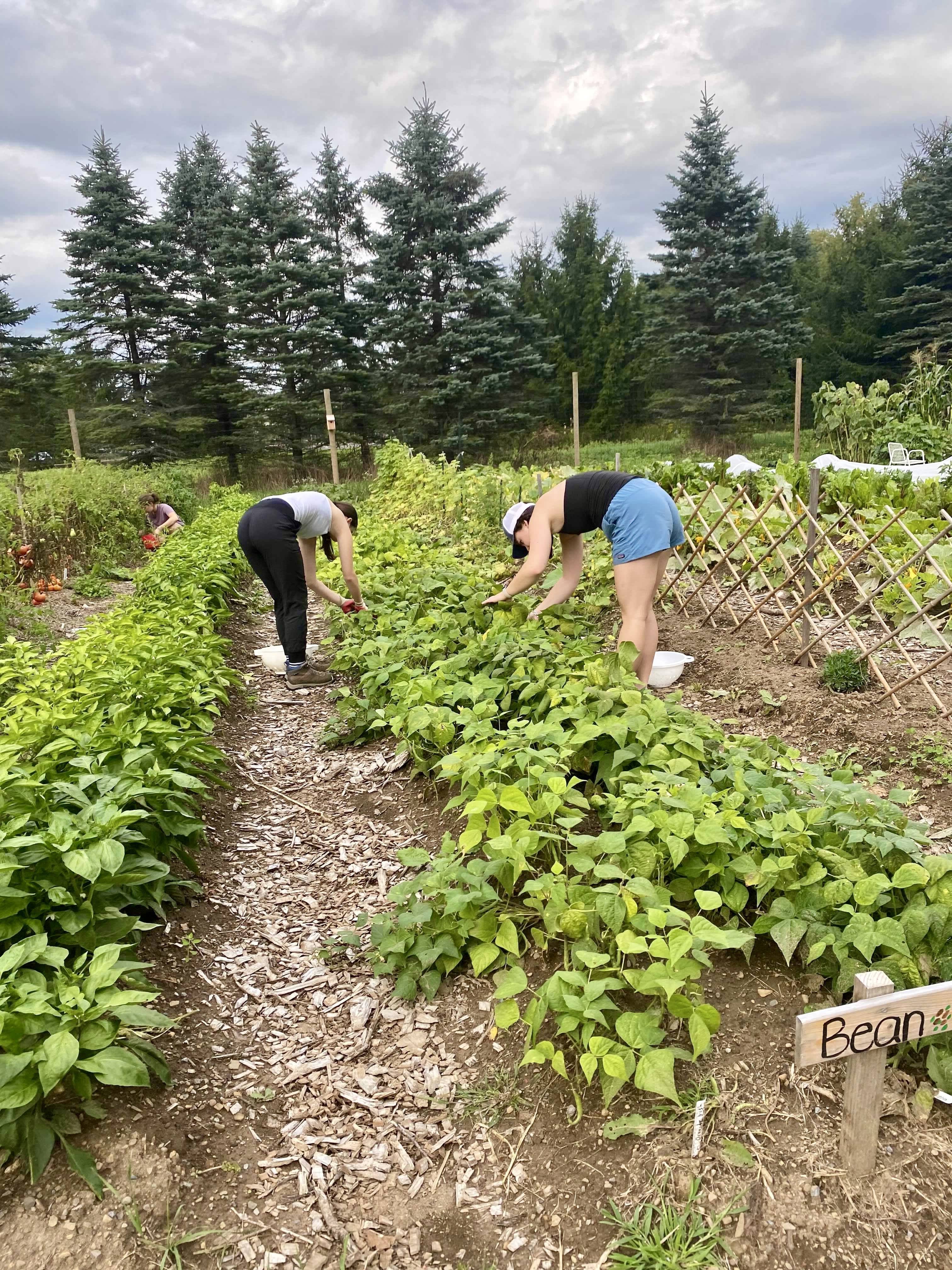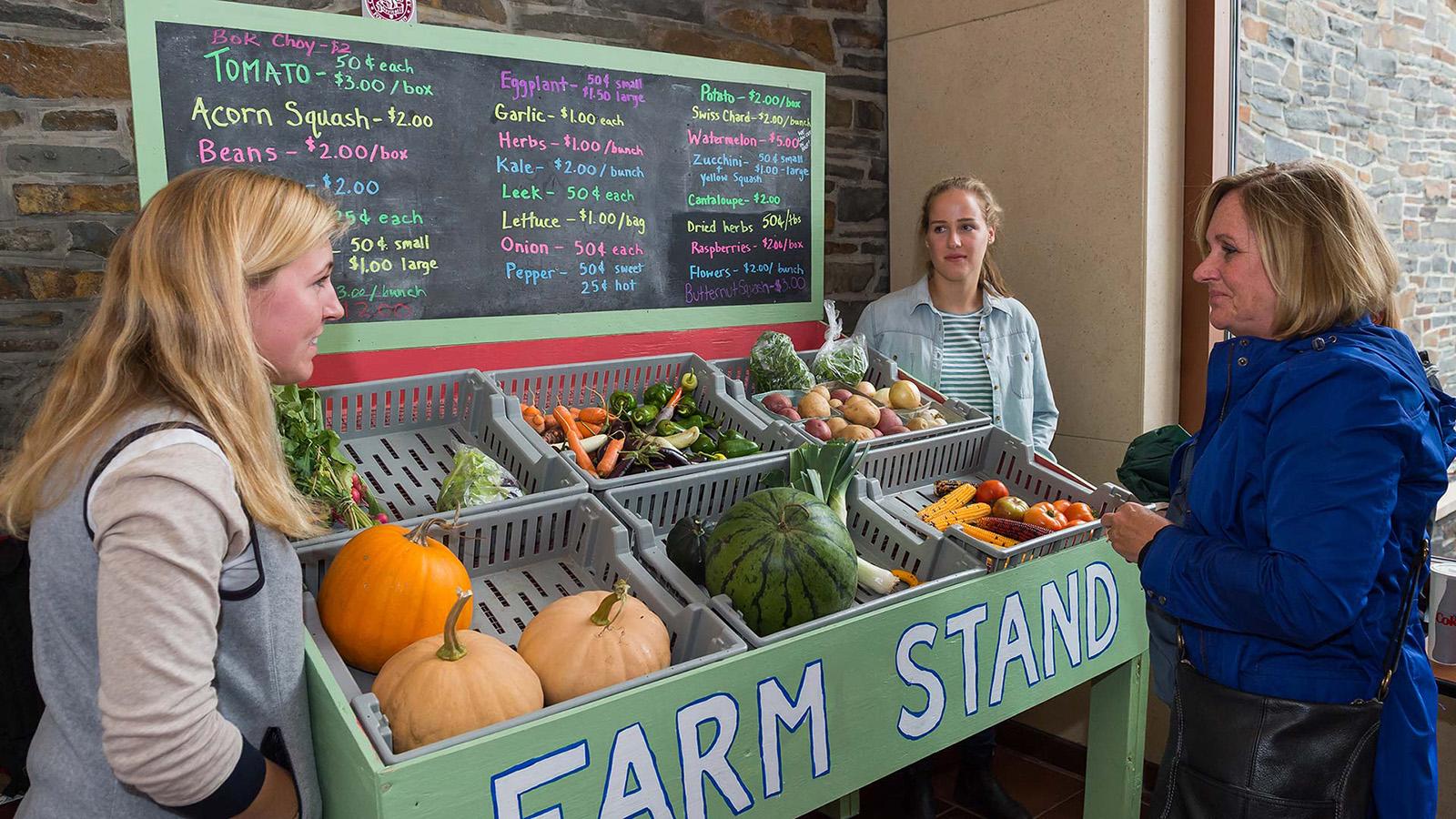Sourcing local, sustainable, and community-based food is vital to Colgate University’s sustainability efforts.
Living Local
Purchasing local, sustainable, and humanely produced food supports responsible farming practices while reducing emissions and environmental impacts. The location of the University in the agricultural region of Central New York provides many great options for finding local suppliers of high-quality foods.
Colgate works with several area distributors who specialize in sourcing their products from local farmers and producers. This further supports our local economy while allowing us to purchase a wide variety of fresh and local food items. The University also serves food sourced from:

